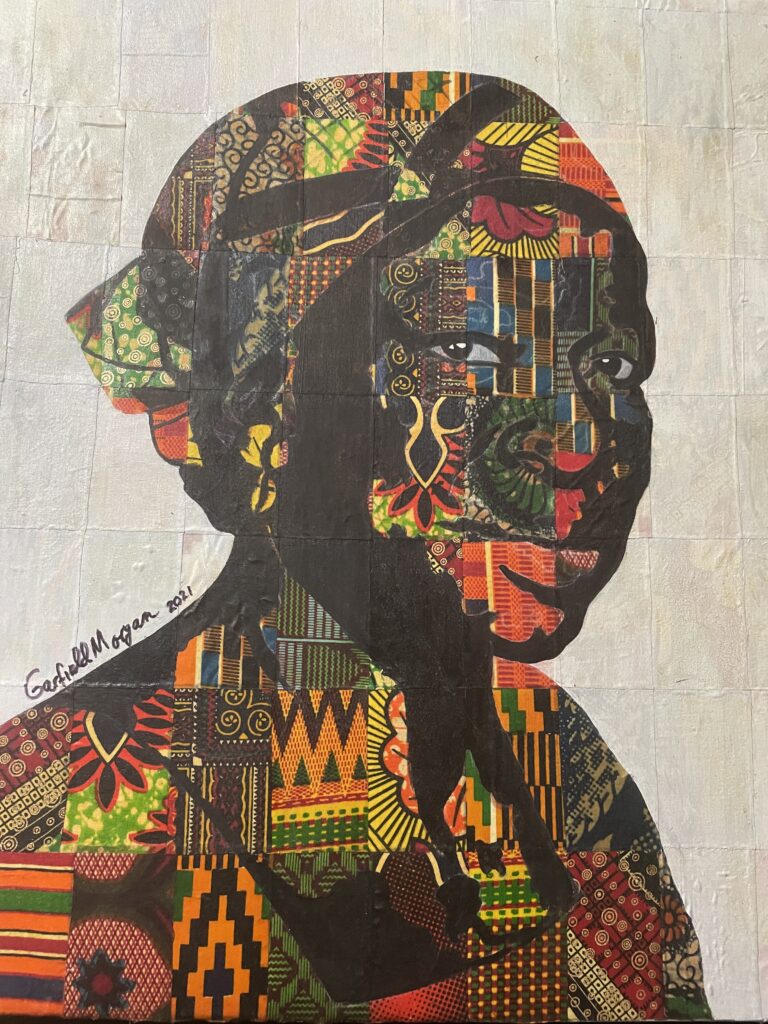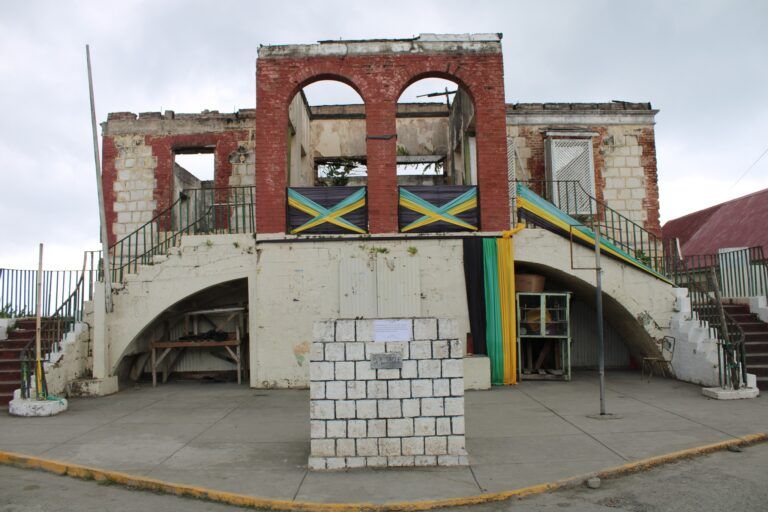Examinations wahala at the University of Cape Coast, Ghana

University studies are demanding and stressful regardless of where one is, or the skills or talents a student has. Wahala is a Hausa word for ‘trouble or difficulty’. At the University of Cape Coast (UCC) in Ghana, studying is getting more and more stressful, and the examination period is the peak of the stress and difficulties that students undergo. The economic crisis shaking the whole country is making university education a real nightmare. Tuition fees increase every year, accommodation is more expensive than tuition, and is almost nonexistent on campus after the first year. Consequently, students are forced to find residence in private hostels, paying close to 5,000 Ghana Cedis or approximately USD 400 for the academic year which is just some few months.
Certain factors are unique to the UCC. A discussion with students highlighted some of these. One of the most devastating is the almost non-existence of libraries. The UCC’s main library and the various departmental libraries are not used by students. They limit themselves to the notes provided by lecturers. First, many lecturers discourage the use of the library. They are interested in students giving back to them the information that they gave to the students. That practice is locally referred to as “chew and pour” and many students graduate with good grades just by applying that technique. Research is, therefore, not part of their activities, as students. Some students do not set foot into the library during all the years they spend studying. Some students patronize the libraries only during examination time because they need a quiet place where they can learn. They go to the libraries, not to seek information in printed or e-materials, but just to use the quiet rooms or corners and read the notes taken in class.
Second, lecturers recommend books on their course outlines that students simply cannot find in the libraries. This is a general problem in Africa, libraries are not well furnished or rich enough in documentation. Ill-placed national priorities are often cited as the reasons behind this tragedy. So, the reading culture is dwindling at a vertiginous speed in our universities and UCC is no exception.
Very few students spend money on books. Struggling to survive is the main concern for most of them and, as a result, students who can afford to buy books are seen as “well-to-do”. And most of their classmates borrow their books and run photocopies.
Students also suffer from a high level of stress, poor health, poor eating habits and limited resources. Many parents simply drive their wards to the university campus and bid them farewell, giving to the ward all the money they can afford to part with. As a result, the students know that they cannot demand any more from the parents when they run out of money. Some contend that they receive money monthly or every other week from their parents, but those are few. Most students “manage” the money that the parents give them when they come to school at the beginning of the semester. That means designing strategic ways of feeding oneself first and then attending to other needs.
Most students eat two meals a day. The first one slightly before noon and the second and last one early in the evening, which means going to morning lectures on an empty stomach. There is a difference in the type of food eaten by boys and girls, men and women. The former tend to prefer heavy meals that are also less expensive and which keep them going all day long while they drink water. Male students buy their food at the canteen of the popular market called “Science Market”, close to the lecture theatres on the campus. One of my male students educated me on his eating habits, “most boys eat the following as first meal, at the Science Market, some beans for 3 Ghana cedis, rice for 3 cedis, plantain for 3 cedis and one cedi for drinking water. (One USD is approximately 15 Ghanaian cedis today and that gives a more accurate idea of these amounts, to non-Ghanaian readers). That sustains you until evening time, when your second meal will be: Ga Kenkey (a local dish, highly nutritional, made with corn dough) for 4 cedis, fried fish for 6 cedis, then they buy some water as their main meal of the day. That means that, in a day, a male student spends 20 to 22 cedis on food”. His female counterpart added that during normal times, students cook their own meals and that costs less and is more hygienic and nutritive. But during examination weeks, students do not have time to cook, they have to buy food, either at the Science Market or from vendors who do business near the hostels where the students reside. She added that ladies tend to eat lighter and more carefully selected food that costs more than what boys spend. For instance, the average female student feeds herself this way: “indomie (a brand of instant noodle) for lunch and kelewele (fried plantain spiced with pepper, ginger, onion), a can of soft drink when they can afford to, or two sachets of water”. Not all students can afford these basic types of meals, though. These amounts spent daily on food by students of UCC might look very little to many but to the average Ghanian, it is a lot of money and only few students can afford to spend this on food. During examination times, and when times are hard, in general, students cannot afford this, they have to limit their food intake.
The financial woes of our students go beyond this. A high number of students are admitted at the University Hospital and the diagnosis is always the same – stress and malnutrition. Many students are of the view that the University Hospital helps by giving them very cheap or free drugs when they present symptoms like malaria, fever, headache and stomach ache, and so on.
Examination times are really distressing for students; their whole life style and routine changes, mainly because they study at the “last minute”. They are convinced that their lecturers (unfortunately some lecturers do that) want them to regurgitate what they were fed, a simulation of the destructive “Banking Concept of Education” that Paulo Freire advises against. The busy and intensive examination weeks are also due to another type of short cut, which essentially is reading materials, writing on topics or answering questions that have a high probability of being the examination questions. In their own jargon the students call that “Apor konkron” meaning “holy questions or past examination questions that are likely to be posed again, word for word.
The examination weeks’ fever does not mean that our students do not enjoy themselves. On Fridays and Saturdays (on ordinary weeks) they go on dates to recreational spots like Hutchland or The Breeze by the beach near campus, a habit that every student I spoke with knows and calls “nkoso”, when first year girls are smitten and go on dates with continuing students.
Our education system needs serious overhauling. Our students graduate with less skills and do not perform well on the job when they are lucky enough to land one. Their language is not so good, and their sense of responsibility and maturity are low, and they lack critical thinking. Instructors are contributing to create a society which is less competent and reliable. The bad economy certainly contributes as some people contend, but the teaching and administrative staff of the universities need to question their practices, consult among themselves, and embrace more problem-solving approaches.
Moussa Traoré is Associate Professor at the Department of English of the University of Cape Coast, Ghana.







@V Mate Ras Musah it’s “Apor kronkron” and not “Apor konkron”. But I could agree this is the fante version. Your fante is better.
But reading I nearly cried.
All the struggles and difficulties I went through as a student during my days at the uni kept racing in mind medulla oblongata.
Thanks for bringing those thoughts back racing in me.
You’ve said it all.
Another problem students face from the various halls is intermittent supply of water. Hardly a week will pass without recording a day or two where the taps would stop flowing. Black out is another problem student face. There is no standby generator for the halls when the light goes off.
Today, we have to use our phones light to finish writing our quiz because the light was off.
ucc is that soil that could, and can, and will, kill its seed in an attempt to give it life. there’s no sweetness here!
Thank you Prof. for another insightful and educative article….
Libraries are a means to further end. And what is that end? It can be defined as a full and civilized life… as full and civilized as is possible for each individual…Reading is like conversation with the finest men of past centuries…. Prof. your deep and insightful analysis about the state
of libraries in UCC,most students not patronizing libraries nowadays, their lecturers compelling them to produce what they’ve given by them and not accepting any new information,poor feeding habits of students in UCC and financial constraints of students worsen by current economic woes are apt and need to be addressed…
Prof. I enjoyed reading this piece. I do like the flow.
This article really defines learning at all institutions in Ghana. Infact there is nothing new though it’s been preached everywhere that we are making progress in diverting it learning to a modern one where critical thinking and skill oriented courses will be emphasized. Infact Al this are castles being built in the air.
One most devastating issue I always think about but could not help is accommodation. The cost of accommodation on campus is as high as though a city elite workers. Worse of all, prices are being increased year in year out. Of late, I asked myself whether students could one-day afford the hostels. Most hostels are heating GH¢5000.00 plus and the most unfortunate is that each individual must pay the said amount before accessing the same room, even if you’re three in the same room. Recently, I contacted the SRC to negotiate if the university could build halls on campus for some students to access. This is because I do not see the essence of vast arable land which should have been in use.
Aside the issues of accommodation is feeding. Only God knows how some of us survive the drought of food, finance and practically anything that deals with sustenance. Thinking about what to eat, where and how to get it is even more depressing especially for those of us who do not have enough money to even buy sachet water on campus. We better remain silent and move on than to dream or think about what to eat.
For some of us, we do not move out for any sort of enjoyment anywhere. No release of stress which we better do not feel. All focus is on finishing the semester hence have no budgets or plans for anything like fun, or ‘nkoso’ or any bub anywhere on campus.
I will support and affirm the fact that our educational system needs an overhaul together with the brains behind. This is a much anticipated moment I still await to see or hear one day. This is because nothing like skill is emphasized at the university.
If you think I’m lying, check from all the practical sections in the university to see whether there are enough resources. There was a time that chemicals has to be borrowed for students to carry out their practical lesson. How can this happen in the university?
A very nice piece
Indeed overhauling should be the concern of our leaders not only our universities.
University of Cape Coast is one of the worlds best University.I was surprised to know that, at this University there is a course titled CRITICAL THINKING . A course that all levels 200s would have to offer , for them to think critically. However, in our quest as students to pursue a higher education we go through a whole lot of things that if I apply the course Critical thinking to even puts me in suspense. One the issues that needs to be given a critical overview is the idea of quarantining students. I know you may be asking why students are to be quarantined. This uncalled for idea to stress students are as a result of the students having two papers to write at the same time or even another paper after . We always complain about the clash in our lecture time table and as if it falls on deaf ears only to meet them in the examination time table as well. My question is it the fault of the students or examination time table committee?
Another area worth mentioning is the attitudes of some invigilation assistance when supervising an on going exam. For some, because of the meager amount they would be paid, they think they are to handle students as if we are foolish. I don’t blame them for it is because of the training they had , for all you know this are the people who had to go to offices to beg for their names to be added to the team and would want to do everything that they can do to make them known that he’s not sleeping on the job.
Again, students in the heat of writing an exam would have to write some quizzes or even in some cases presentations which even a done after their exams . Some even caption it redemption quiz. This might be in favor of those who could not write some quizzes.
An already allocated venue for examination changes on the day of examination.Students would have to be moving from one venue to another in search for the newly allocated place. Let another person also share with us
You could not have put it better, Prof. It is so devastating. The system really needs a quick overhaul before things get out of hand. Could you imagine some of the male students donate their sperms to survive? Others service old ladies (Sugar mummies) to survive. This piece is highly relatable. I love the Marxist concept in the write up. If we don’t address the system, we will find ourselves in an undiscoverable ditch. Thank you, Prof for sharing
Awesome piece. Thank you prof.
And some lecturers would even go to the extent of marking you down when you paraphrase or write from your point of view.
We hope this approach and methodology changes.
You are exceptional in our methodology.
Prof, at times some lecturers even tend to reject information a student has gotten from another colleague lecturers. When it happens like that, all you think about is to memorize and reproduce whatever your instructor is giving you without making any effort to find additional information elsewhere. After all, we are thinking about getting our grades and the particular lecturer is the one going to grade you. Therefore, in the instance where he is not accepting anything different from what he gave you, you too become a passive learner and reproduce whatever information he gave.
Secondly, our mode of assessment, over the years, has always been paper and pencil test which is also more of knowledge and understanding rather application of knowledge and creation. For this reason, students who have very retentive memory to store more information tend to be advantaged than their counterparts who are a bit cognitively impaired. Lecturers will keep telling you to apply what they are teaching you bit you will get to exams and the questions are still demanding that you reproduce what is in your notes. When it happens like that, though you may understand the thing practically, but reproducing it verbatim becomes an issue.
I wish sometimes we work on term papers which are very practical and their results can at least impact one or two communities within our enclaves and that can be used as end of semester assessment. I think that one too can unlock the criticality of some of us.
Also, the academic calendar does not favour us at all. We spend most of the time in the house and spend a little over nine weeks doing active teaching and learning. This does not encourage thorough learning and understanding. We mostly rush through the course to pass our exams and leave. We have limited time to do extra curricular activities. There are lots of gains and enterpreneural skills we can get through extra curricular activities but it seems time is always against us to the that regards.
On the issue of finances, it’s a whole thing on its own that I’ll get time for it later.
Thank you, Prof.